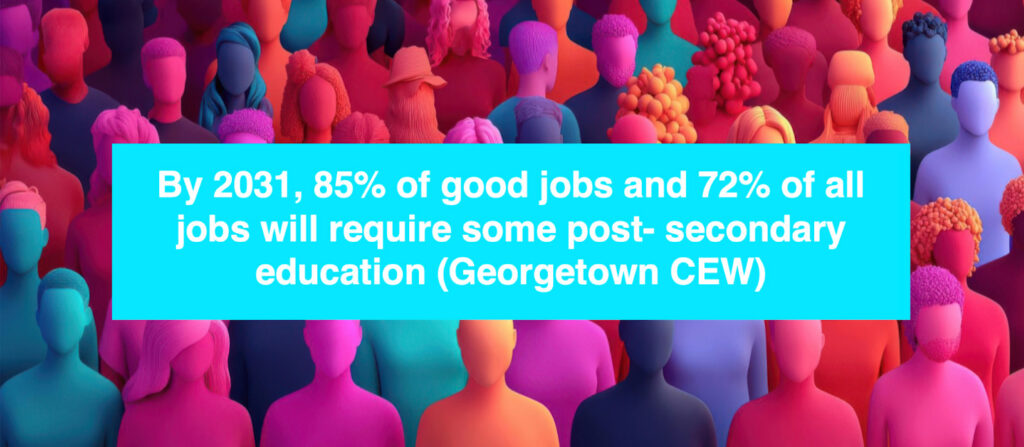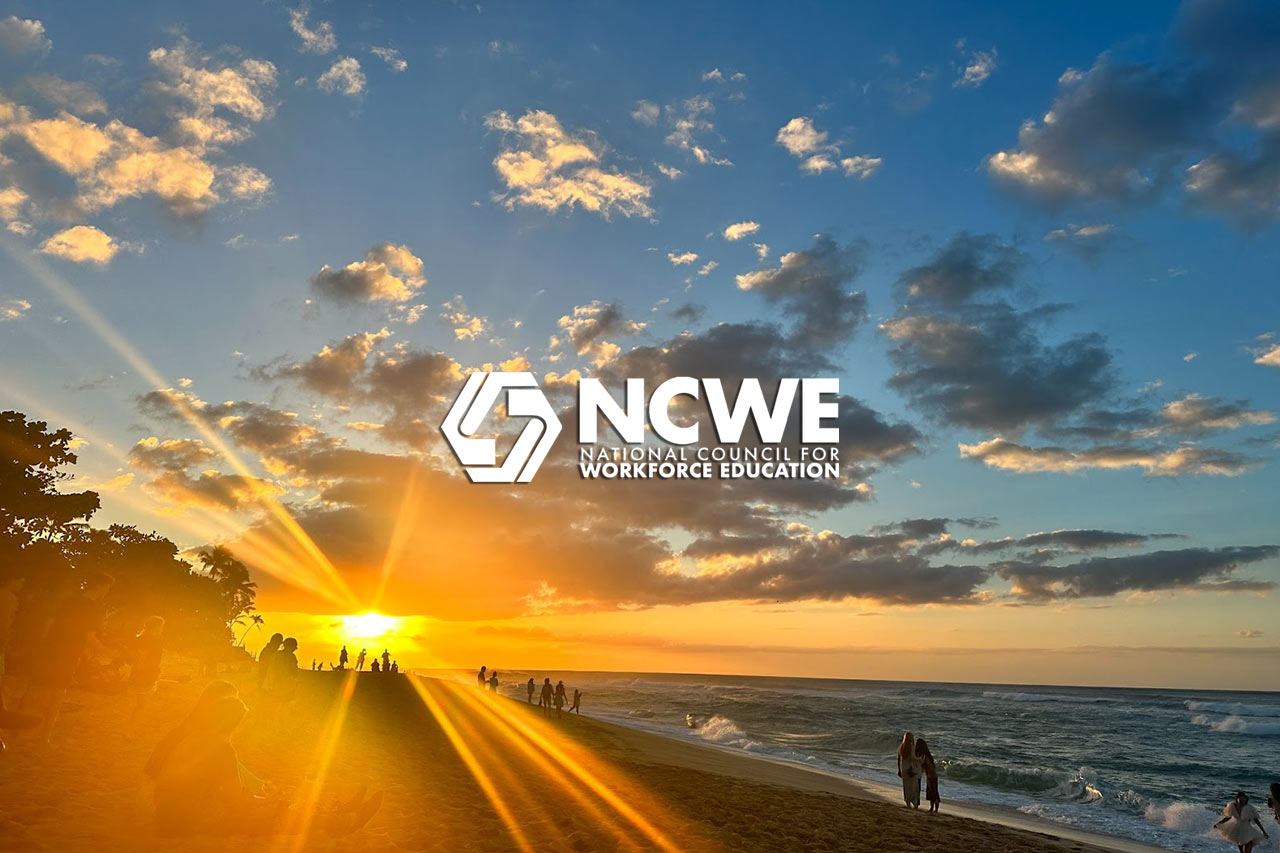Message from Executive Director, Kate Kinder
NCWE celebrates 30 years as an independent nonprofit this year, and 50 years as a council affiliated with the American Association of Community Colleges. Thanks to its timeless mission and focus on advancing workforce education excellence at our nation’s community colleges, the work of NCWE remains more important than ever.
We are at an inflection point, with great upheaval and rapid shifts in our skills-based economy, our workforce, and our higher education system. Advancements in automation, AI, energy, and digital technologies are impacting every industry. As jobs require learners to possess an increasingly complex set of durable and technical skills, postsecondary credentials are more important than ever. By 2031, Georgetown University Center on Education and the Workforce (CEW) projects that 85% of good jobs, and 72% of all jobs, will require some postsecondary education.
To thrive as a nation and meet this moment, we must do more to support and strengthen our nation’s community colleges and their workforce education pathways. To power our economy and respond to industry, we must do more to support learners and boost college access, credential completion, and connection to quality careers.
Community colleges are engines of opportunity and drive the economic vitality of their regions. As the nation’s largest providers of open-access, high-quality education, community and technical colleges meet the needs of learners, employers, the community and local economy. The skills developed and credentials conferred in community college workforce programs create opportunities for learners entering their first job, changing careers, or reskilling and upskilling in their present industry and role. Effective community college workforce education programs are also a vital solution for addressing employers’ talent needs, in all regions and across all major sectors.

Dedicated to excellence and innovation, community colleges are transforming to further their impact. Colleges are blurring the lines between noncredit and credit programs, integrating dynamic work-based learning models, adopting new quality credential frameworks, and expanding industry and community partnerships. They understand that in order to fuel economic development, they must effectively reach and serve those furthest from opportunity, providing all students with the resources and support they need to succeed. As today’s students are increasingly balancing work, parenting, and caregiving, colleges are taking a holistic approach to how they serve new majority and adult learners.
Along with expanding access to high-quality workforce education programs and increasing college completion, community colleges are aiming to shift the story. Although community colleges and their workforce education pathways are a fundamental part of our higher education system, they are not always recognized as such. Too often, the life changing work of community colleges is defined by what it’s not. Deficit frames and qualifiers– “less than a Bachelor’s degree,” “just workforce,” “nondegree”–fail to capture the transformative impact and achievements of our students.
To change this narrative, there is a need to shape a more expansive understanding of higher education and workforce education. Workforce is a both/and continuum that includes adult education, integrated education and training, dual credit, microcredentials, short-term credit and noncredit certificates, stackable credentials, CTE certificates and degrees, apprenticeship, and applied Baccalaureate degrees. Seat time and full-time enrollment cannot dominate a future-focused college experience. All learning must count, and all students must be considered and centered. A student is a student, is a student–regardless of what door they use to enter and exit the college, their program of enrollment, or their ultimate academic and career goals.

This open access mission of the community college, and focus on increasing college and career opportunities, must be celebrated and protected. Communities and economies prosper from a diversity of perspectives, experiences, ideas, and backgrounds–those that are represented in community college shops, labs, and classrooms. Welcoming all learners and voices, especially those who have been excluded or denied in the past, supports our 21st Century workforce. Believing in the potential of people and recognizing that everyone deserves a fair shot and access to the resources they need to realize their college and career goals ensures we don’t leave people, businesses, or places behind.
In times of great uncertainty, change, and upheaval, centering people and building community is essential. Community colleges create community. Thriving communities. They are of and for our communities–good for people, for families, for businesses, for communities, and for a strong America. To propel collective prosperity and a robust economy, we must stay focused on this mission, and ensure we are expanding rather than restricting opportunity.
NCWE remains steadfast in our dedication to this work and in meeting the moment. Building on thirty years of success, NCWE will continue advancing workforce education innovation and excellence at the nation’s community colleges, supporting our dynamic network, and elevating practitioner-led and student-centered solutions to drive economic prosperity.

